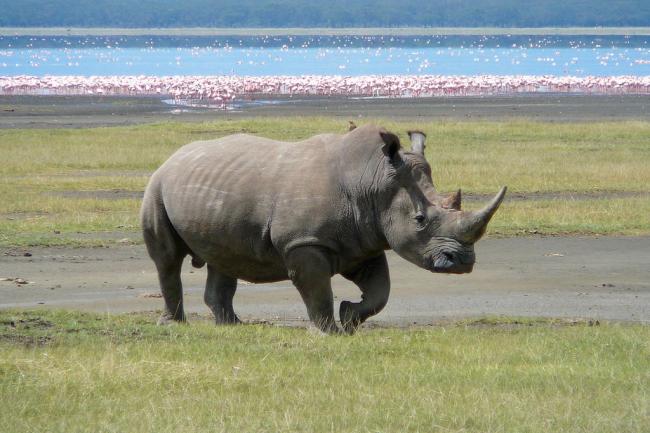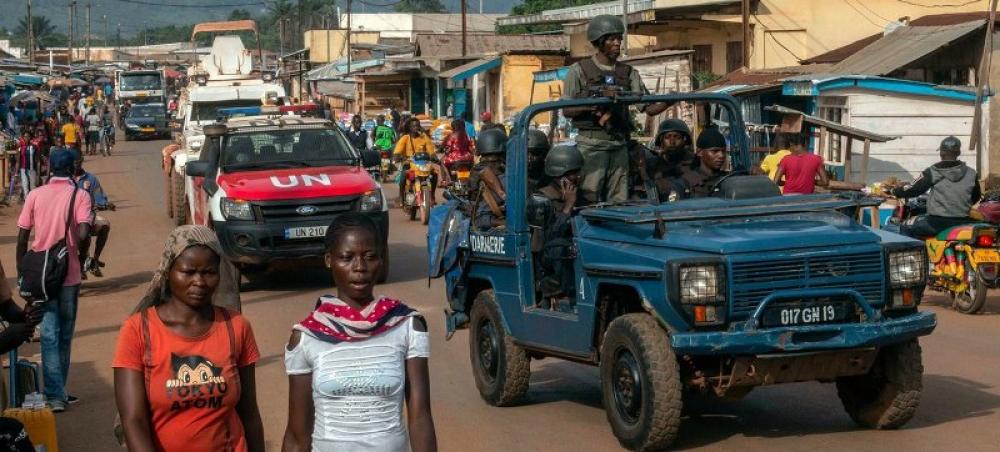04 Mar 2015, 05:48 pm Print

“Combatting this crime is not only essential for conservation efforts and sustainable development; it will contribute to achieving peace and security in troubled regions where conflicts are fuelled by these illegal activities,” said Ban in a message on the Day.
“Getting serious about wildlife crime means enrolling the support of all sections of society involved in the production and consumption of wildlife products, which are widely used as medicines, food, building materials, furniture, cosmetics, clothing and accessories,” the Secretary-General added.
World Wildlife Day, observed annually, with this year’s theme ‘It’s time to get serious about wildlife crime’, was proclaimed by the UN General Assembly in 2013 for 3 March, the day of the adoption of the Convention on International Trade in Endangered Species of Wild Fauna and Flora (CITES).
According to the United Nations, as many as 100,000 African elephants were killed between 2010 and 2012. For forest elephants, the population declined by an estimated 62 per cent between 2002 and 2011.
According to CITES, 1,215 rhinos were poached in South Africa alone in 2014 – this translates to one rhino killed every eight hours.
The illicit trafficking in live great apes is an increasingly serious threat to chimpanzees, gorillas, and bonobos in Africa and orangutans in Asia, with seizures averaging 1.3 per week since 2014. It is estimated that a minimum of 220 chimpanzees, 106 orangutans, 33 bonobos, and 15 gorillas have been lost from the wild over the last 14 months, according to the Great Apes Survival Partnership (GRASP).
In his remarks, CITES Secretary-General John Scanlon said said, "Illegal wildlife trade is threatening the survival of some of our most charismatic species, as well as some plants and animals you may have never heard of. And it threatens people, their livelihoods, their safety and security.”
“The situation is serious,” he declared, urging the international community to tackle the poaching, transport and consumption of illegally traded wildlife and in so doing use the same sorts of enforcement tools, techniques and penalties used to combat other serious crimes, such as trafficking in drugs or persons.
Indeed, once an emerging threat, wildlife and forest crime has transformed into one of the largest transnational organized criminal activities alongside drug trafficking, arms, and trafficking in human beings.
“Wildlife crime is a transnational organized crime generating billions of dollars and undermining development. It is also an inter-generational crime that can permanently scar the world through the loss of some of our most beautiful creatures. To stop this, we must act now,” said Yury Fedotov, Executive Director for the UN Office on Drugs and Crime (UNODC).
The UN Development Programme (UNDP) is launching new initiatives to halt the illegal trade in wildlife in Asia and Africa. These initiatives will tackle wildlife crime by focussing on law enforcement, regulations, and engaging the private sector and strengthening collaboration between governments within and across the two regions.
“World Wildlife Day is an opportunity to celebrate wildlife, but it is also a wake-up call to get serious about wildlife crime. We must all do more to halt the illegal trade in wildlife. UNDP and its partners are committed to this task,” UNDP Administrator Helen Clark said.
World Wildlife Day is being marked by events around the world. In New York, the Central Park Zoo is featuring a high-level expert panel discussion on the links between wildlife trafficking, organised crime and sustainable development.
On the occasion of the Day, General Assembly President, Sam Kutesa, will host a special session, where Member States and the global community will examine the challenges and opportunities to stepping up international efforts to combat wildlife crime at a global scale.
Photo: Ryan Harvey
- Tide of change in Philippines as women revive watersheds and livelihoods
- WMO says Asia is warming twice as fast as the rest of world
- Global push to end plastic pollution gains ground in Nice conference
- Antonio Guterres calls for an end to ocean ‘plunder’ as UN summit opens in France
- Drifting architects: Plankton, climate, and the race to understand our changing ocean






